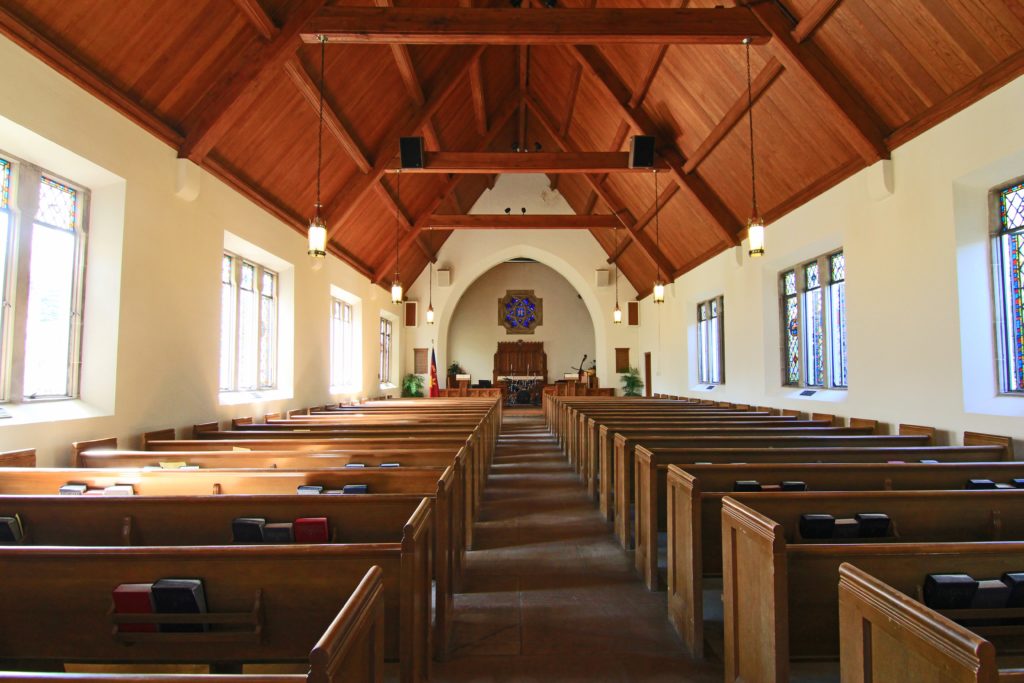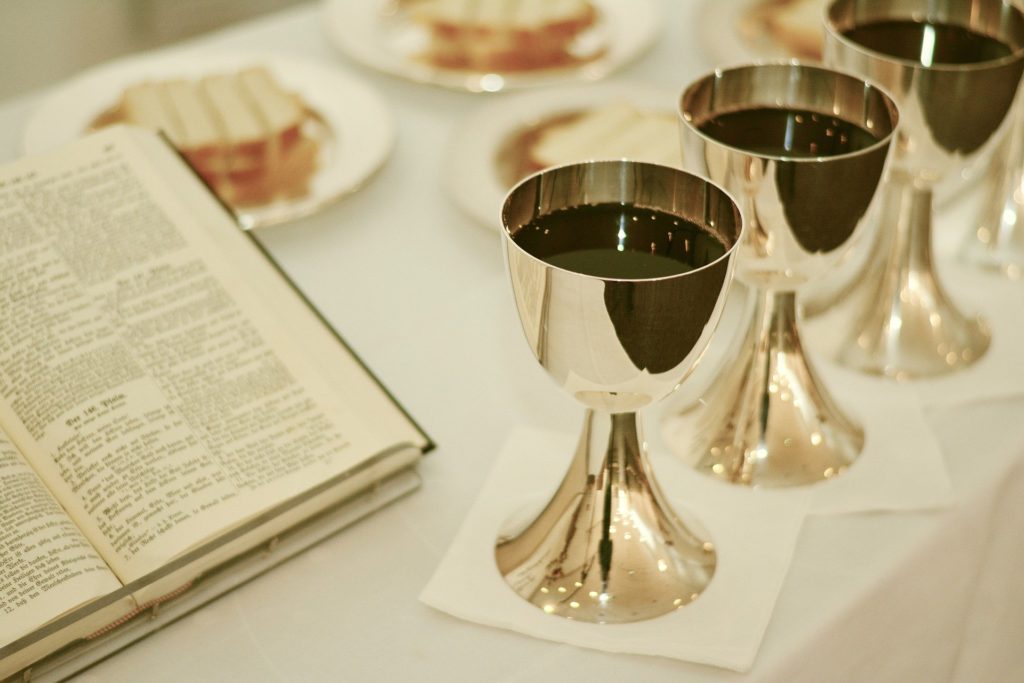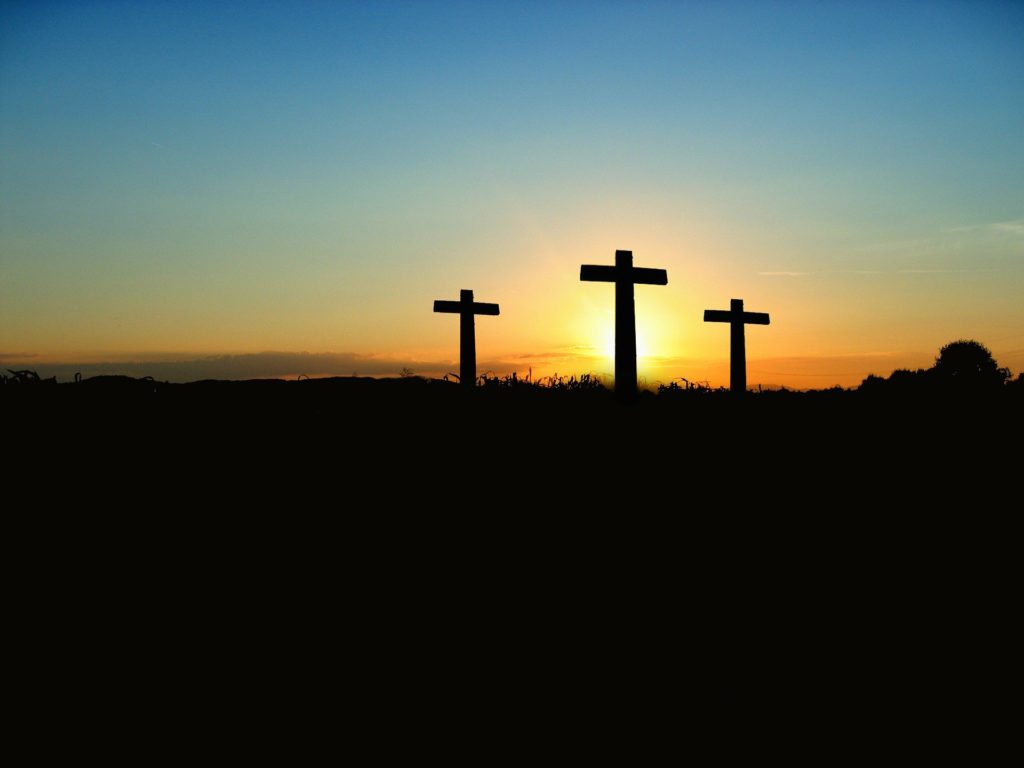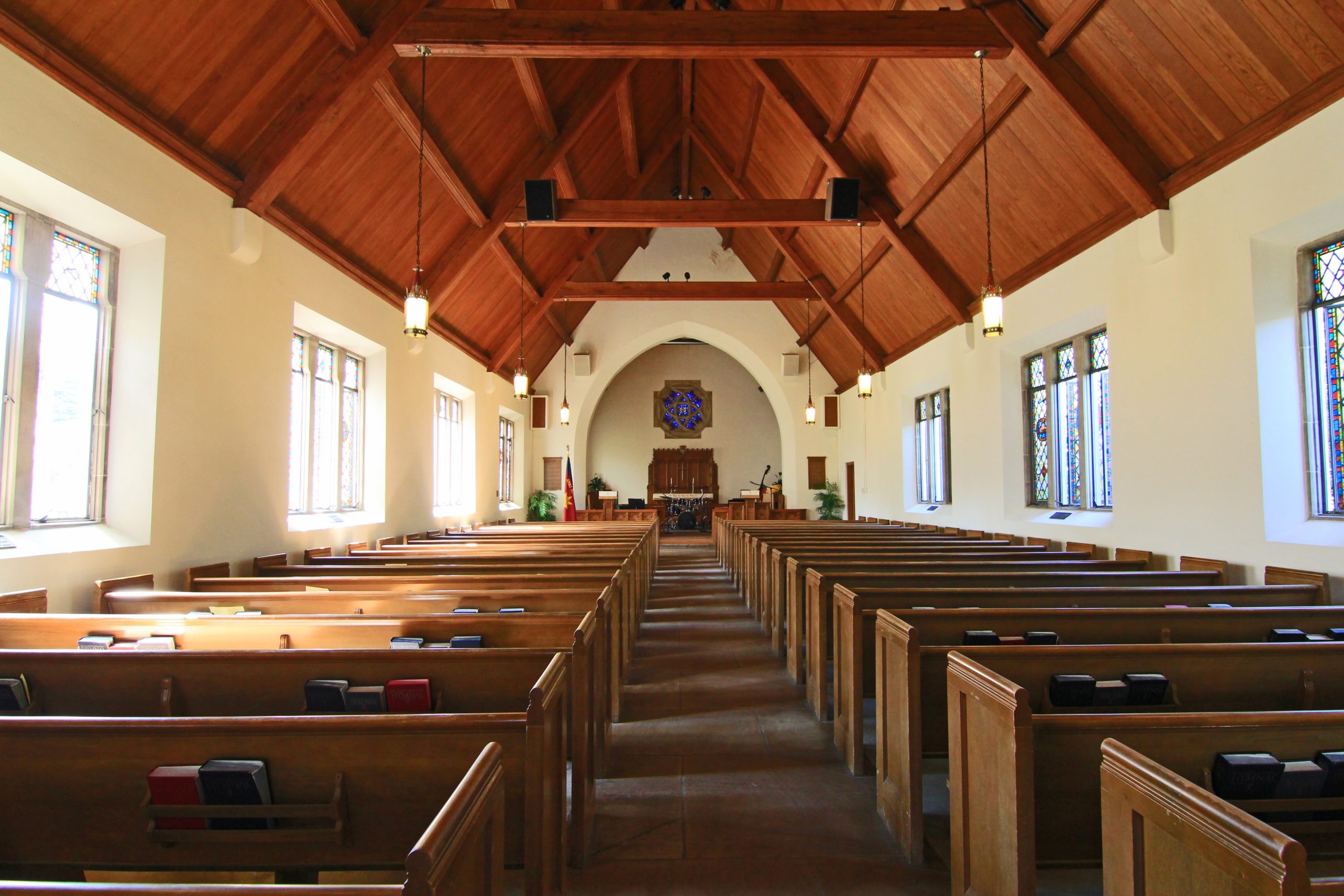Introduction
The battle against COVID-19 continues all over the world. We are still praying and hoping for an end to the whole situation.
Because of the virus, many churches all over the world have had to close down indefinitely until the government decides it is safe to go back to church. The virus has led to the close of many important things. Businesses and schools are shut down. Various sporting events are also shut down.
At different points, many of us have lamented our inability to go to school or work. Many of us also lament the inability to watch or play our favorite sports teams (How I miss watching Real Madrid and Man City). However, in all of these, do we miss church? How we answer that question may reveal a lot about our understanding of the church.

As a Deer Pants for the Water
In different parts of the Psalter, we see David expressing a passionate longing for God. At this time, he was in the wilderness (desert) of Jordan. David was in this wilderness at two points in his life – when he was running away from Saul (1 Samuel 23:19) and when he was running away from Absalom (2 Samuel 16).
However, his reference to himself as a King (63:11, 61:6) leads us to believe that he composed these Psalms (at least 63 and 61) in the second period.
When David was in the wilderness, he was longing for the time when he could go back to the temple and meet God. We should not think that David did not have a personal relationship with God. We know from the life of Elijah (1 Kings 19), John the Baptist (Luke 3), Jesus (Luke 4), Paul (Gal 1:17), and Apostle John (Revelation 1:9) that the solitude that these wilderness experiences provide can be an immense opportunity for nurturing a personal relationship with God.
However, David was still longing for the temple. The thirst he experiences in the wilderness awakened his spiritual longing for God (42:2). He was longing for the time he can go and meet with God. In his reflections, he remembered how he led the procession to the house of God (42:4) and the display of God’s glory in the sanctuary (63:2). He was longing for that holy mountain (Zion), the place where God dwelt (43:3). In this wilderness, it was as if he was in the ends of the earth (61:2) longing to dwell in God’s tent forever, never departing from the shadow of his wings (61:4).
Surrounded by enemies, David was longing for God’s presence and deliverance. A large part of that longing was a desire to go back to the temple of God and worship with the people of God. The opportunities that a desert provides for spiritual development could not satisfy him.
What is the Church?
Many of us may look at David’s story and assume two things – David did not value personal worship as he should, or church is not as relevant now as it was then. If we assume any of these, we are wrong. No one reading the Psalms can nurture for a second the idea that David did not have or value personal worship, as he should. If only many of us can have the same intimate relationship he had with God!
The second error we can make is to assume that the old covenant sanctuary or religion emphasized the temple in a way the new covenant does not. We live in an individualistic world. Family and patriotic values are declining while we elevate individual preferences, achievements, and sense of value. It is very easy for us to interpret the scriptures with that sense of individualism.
When Christ gave his life on the cross, he died for a people – his sheep (John 10:11). While he saves us individually, he saves us to be part of a people – the chosen generation and holy people. He calls Jews and Gentiles into one body (Ephesians 2) – the household of God that is built on the foundation of apostles and prophets-and every one he saves is a member of the same body – the Church (1 Corinthians 12, Romans 12, and Ephesians 4). We are God’s temple (1 Corinthians 3:16) and building (1 Corinthians 3:9).
While God saves us as individuals to have a personal relationship with him, we belong to his body (temple, building) together with other believers. There is a sense in which we come to the garden alone, but there is also a sense in which we come with a myriad of other people. The joy we share as we tarry there, millions of other people also share with us as the one body of Christ.
This body of Christ is trans-national and trans-generational, but it finds expression in millions of local congregations where God brings his people together. In the New Testament, each of these local congregations is called a church. Therefore, there is a sense in which the church is the cumulative of all the sheep of Christ all over the world. There is also a sense in which we use the word church to refer to every local congregation where those sheep gather all over the world.
The point is – the New Covenant does not have a lesser sense of corporate identity than the old covenant. What David felt, we all must feel. What then is the church (local assemblies of God’s children) for?

What happens in Corporate Worship?
The church is the place where the people of God come together in a corporate union to worship God. Christ himself procured this privilege of worship for us. (Hebrews 9:14) Immediately after Pentecost, those who accepted the message and were baptized began to “devote themselves to the apostle’s teaching and to the fellowship, to the breaking of bread and to prayer.” (Acts 2:42). The apostles were in one place when Christ appeared to them and when the Spirit came at Pentecost. After Pentecost, they continued to fellowship together with all those Christ was saving. Coming together in worship is one of the distinguishing marks of the church of God in all its local expressions.
What do we do in that corporate worship? There is the public reading of Scriptures together with preaching and teaching (1 Timothy 4:13). We also teach and admonish one another in psalms, hymns, and spiritual songs (Col 3:16). We give to the work of God (1 Corinthians 16:2, 2 Corinthians 8, 9). We pray for all people. (1 Timothy 2:1-3, 8)
However, there is a difference in emphasis when we ask what we do in worship and what happens in worship. The above paragraphs are what we do in worship. However, Hebrews 12:22-24 gives us a picture of what happens in worship.
The writer of Hebrews was laboring to persuade these Christians that in Christ, everything is better, and they have no reason to go back to Judaism. They may experience persecution, but they should endure because when you depart from Christ, you are going back to something less. In this paragraph (12:22-24), he painted before them a picture of the difference between the old covenant and the new. The pinnacle of the experience of Israel was Sinai. There God came to them in lightning and thunders and gave them the law (Exodus 19, 20). What we have in the New Covenant is greater and grander.
We have not come to Sinai – a mountain that can be touched and is burning with fire. Rather, when we come to Christ in the new covenant, as a church, the body of Christ, we have come to Mount Zion. As the New Covenant church, we have come to the true Mount Zion, the heavenly Jerusalem, the city of the living God. The writer went on to tell us that we have come to innumerable angels in joyful assembly. We have come to the universal church, to God himself, to Jesus, and to all the glorified saints who are already in God’s presence.
Whenever the church gathers, we are gathering with God, Jesus, the innumerable angels in heavenly worship, to the glorified saints already in God’s presence (2 Corinthians 5:1-9, Phil 1:20ff). Though we are on earth, we are gathered in the heavenly Jerusalem. Did Paul not remind us that our citizenship is in heaven? (Phil 3:20). If we understand Hebrews 12:22-24, we will never come to church with indifference again. Something huge happens anytime God’s people come together in worship. It is glorious. Whether the church gathers under a tree or in the most exquisite structure, we are gathering with the triune God, with innumerable angels, and glorified saints in heaven (spiritually). The worship on earth joins with the worship in heaven, all in praise of him who has redeemed and bought us with his blood. This is no joke.

The Lord’s Supper: Covenant Renewal
One crucial part of our corporate gathering is the Lord’s Supper. Jesus instituted this ordinance on the day of his death. He had the Passover with his disciples and established it as an ordinance. We are to do this in his remembrance. When we partake in the Lord’s Supper, we remember the death of Jesus and the New Covenant that he instituted in his blood. (Luke 21:20).
In 1 Corinthians 11, Paul reemphasized the importance of this meal to the people of God. We partake of this meal when we come together (11:20), we do it in remembrance of Christ’s death and the institution of the New Covenant (11:23-25) and thereby proclaim his death until he comes. (11:26). The Lord’s Supper is a holy business, and we must come to the table with self-examination. (11:27-32). Many people at Corinth became weak, sick, and dead because they did not treat this with holy reverence.
The Lord’s Supper is a covenant meal where we renew our commitment to Christ as his new covenant people.

Church Discipline
Paul rebuked the church in Corinth for failing to discipline a member who slept with his father’s wife (1 Corinthians 5:1). He instructed them that when they are gathered as a church in the name of Jesus, they should “hand this man over to Satan so that that sinful nature may be destroyed and his spirit saved on the day of the Lord.” (1 Corinthians 5:5)
The church is a place where we hold each other accountable to our covenantal obligations before God. Church discipline is a means of grace to the sinning believer. Though by that act, the church hands his flesh over to the devil; they do it so that his spirit is saved. Church discipline is, therefore, in the end, a restorative process for Christ’s sheep that are wandering. This is another thing that happens in the church.
Christian Character
The church is also the place where we nurture each other. First, we teach and admonish each other in psalms, hymns, and spiritual songs. (Colossians 3:14). Second, we encourage each other to faithful perseverance in the Christian walk (as we share our lives inside and outside the church) so that no one becomes hardened by sin’s deceitfulness (Hebrews 3:13). Third, the church provides an opportunity to develop Christian virtues like forgiveness, love, patience, and humility (Colossians 3:12-14, Romans 15:1, Galatians 6:2, Ephesians 4:2, 6:9) as we share our lives with people with people different from us (since in Christ we share the same identity, citizenship, Father, family, and hope).
The church is therefore a means of grace in our sanctification.
Corporate Witness
The church also bears witness to Christ in a way that individual Christians do not. Jesus told the apostles that it is by their love for one another that all men will know that they are his disciples (John 13:35). It is by the unity of the church that the world will know that the Father sent Jesus. (John 17:20-23).
The church is the two witnesses in Revelation 11 that bear witness to Christ in this world. It is through the church as a corporate entity that God do battle with the forces of hell. God is saving people from every tribe, language, people, and nation. (Revelation 5:10). Together as the people of God, we are a “chosen generation, a royal priesthood, a holy nation, a people belonging to God, that [we] may declare the praises of him who called us out of darkness into his wonderful light.”
There is a sense in which we give witness to Christ as individual believers. However, it is not the same as the witness the corporate body gives. When people behold us as multitudes saved from every nation, tongue, language, and people, it is a special witness. When we jointly worship God as his ecclesia (called out), we witness to the power of Christ to save and separate from the world (Romans 12:1-2)

What should we do?
How should we then respond when we can no longer meet as a church because of COVID-19? I believe three responses are in order.
Praying
We should pray that God would take away this pandemic (in submission to his will). We long to come together again as local congregations enjoying the great corporate benefits of our redemption. Therefore, with a renewed sense of the importance of the church (the church universal and the church expressed in local assemblies), we pray to God for quick deliverance. It is no longer all about the sports teams, our schools, and shops/offices/companies. It is also about the redeemed community.
Appreciating
We should also thank God that we still have some means to enjoy some of these blessings. Years back, our forefathers in the faith did not have the privilege of Youtube and Facebook Live. We have that privilege. Since God is the one who satisfies the needs of every living creature (Psalms 104:27-30) and every good and perfect gift comes from him (James 1:17, 1 Timothy 4:14), we praise him and thank him for the good gift (yes, it is a good gift that we in our fallen state and world can pervert) of technology.
Longing
However, we must never make the mistake that listening to a sermon on YouTube or watching the elders preach to an empty congregation on Facebook is equal in value to the congregation of God’s people. You do not exercise church discipline virtually. You do not partake of the Supper virtually. The fullness of the experience of Hebrews 12:22-24 is not something we come to remotely.
Therefore, while we appreciate God for what we have, like David, we must long for the temple. We must long for the day when we can go back to our local congregations with our brothers and sisters. Let us remember that the wilderness can be a period of huge spiritual blessing (and let us maximize this period for our spiritual growth). However, let us long like David for the house of God where God manifests his presence in a special way (Mathew 18:20), and we meet with him in a special way (Hebrews 12:22-24)
Conclusion
Let us stop doing church as if it is a burden or go there with indifference as if we are better off listening to sermons in our rooms. Let us go there with joy and excitement, anticipating the manifold graces that God offers us in the congregation. When we cannot meet, let us pray that God will take away the hindrance, let us use thankfully the limited alternatives we have, and let us long like David for the sanctuary of God.



